|
5/19/2024 0 Comments How to Know When It's Time An online Colorado Facebook gardening page has received the same question for weeks now. When can I put my plants outside? Or variations on the theme of when to plant a garden. Some go by dates (Mother’s Day, last week of May). Others by watching extended weather forecasts. My recent answer to “when is it safe” was NEVER. The weather in Colorado Springs is fickle. Summer one day, freezing the next. It has snowed in July. Devastating hailstorms can destroy a garden in minutes Any Time During the Growing Season. If you’re not interested in gardening, and wonder what this has to do with writing fiction, skip to the end. But for me, gardening and writing are intimately connected in my head. Does the photo of my deck garden look ridiculous? This is the result of bitter experience. Allow me to explain each element. Grow boxes and other containers: in this region, you get a choice of delightful soil options. Sand, clay, or decomposing granite. I attempted for years amending my existing in-ground beds. I have concluded that container gardening – and buying soil – provides the swiftest, most satisfying results. (I use Growbox from www.aGardenPatch.com topside, and www.cedarcraft.com below deck.) An added benefit is climate control -the smaller space is easier to protect. See the next two points. Hail cloth: too many times, I have had a lovely garden going, only to lose everything during a hailstorm. With our short growing season, you can’t recover from the loss. The mesh-looking white material covering the frames and cages on the grow boxes deflects or breaks up all but Armageddon-level hail. Row cover: has three purposes. Keeping tender plants like tomatoes warm on the nights that refuse to remain above 40 degrees F until July. Preventing the blasted white moths from ruining greens like spinach and chard. Shade from our intense high-altitude sun. Obviously flowering vegetables have to be liberated, to allow for pollination, but that’s still a month or more and lots of bad weather away. Greenhouse hoops: protect plants from wind, cold temperatures, intense sun, and insects. This might all sound like the end result will be a $100 tomato. After the initial purchase, the grow boxes and flower pots endure for many years. Even the hail cloth can be reused for several seasons. The greenhouse material was leftover from a project my husband created in the distant past – so it was free to me. The row cover and hail cloth can be purchased inexpensively by the foot at my local garden center (Phelan Gardens www.phelangardens.com ). What does all this have to do with writing? Putting your work out in the cold harsh world too early can be a killer. But how do you know when it’s ready to send to agents, publishers, or to release yourself via self-publishing? Your greenhouse hoop is your own caution, keeping your work private until you’re absolutely certain it can withstand the blustering winds and freezing conditions of reader criticism. Hail cloth can be provided by critique partners who will deflect the harshness of anonymous rejection with their gentler suggestions, preserving your work to continue to grow. The row cover is editorial assistance, either by a paid professional or competent beta reader, to help you work the bugs out of your manuscript. The thing you have most control over is soil condition. Are you nurturing your writing? Fertilizing it by reading good literature, joining a local writing group like Pikes Peak Writers or a national genre group, learning more about the art and craft of writing using the many resources available online? In the past, I have exposed my fiction to the elements before it was at its best and strongest. I’m going to take more care going forward. Protecting, not coddling (see last week’s post), until my work is ready to face whatever the world may throw at it. Best wishes for your gardening season, or writing life. Remember, there is no failure, only learning. Even if you lose an entire growing season, or have to abandon a writing project, you can start over. Never stop growing and learning!
0 Comments
5/12/2024 0 Comments Coddling Versus Protecting A delay in gardening season. A delay in gardening season. I started dozens of garden plants from seed. The past week, the temperatures had been warm enough to set out the tougher varieties. I’ve held back, though. Usually I toughen up my starts. I set them in the sun for an hour, then two hours, and finally all day, before moving them into raised beds and planters. The wind this spring has been ferocious. I’m afraid my tender little indoor starts will be snapped by the wind. There is a difference between coddling and protecting. When I hear the word “coddle,” I imagine an excess of care, to the point of actually weakening the subject of your attention. Protecting, in my mind, is defending the subject from the threat of actual harm. If I had set my plants outside in the harsh weather, that could have been disastrous. I protected them from certain doom. If I don’t get them outdoors soon, I’ll be coddling them. Making them weaker. It’s a delicate balance. In writing, you need to know what you (or your critique partners) want. Do you need encouragement to keep going? Or a hard edit before submitting your work to an editor or agent? I attended the Pikes Peak Writers Conference a couple weekends ago. Writers have the option to seek input on their work from professionals. This can be a bruising experience. With my own work, I have definite stages. I begin with an idea, which might morph into a very rough draft. Next it goes through drastic rewrites, pruning the excess words and fertilizing the good lines, until I’ve worked out the rough spots. Then I polish. When I’m in the conceptual phase, and early drafts, I know it stinks. Honest - especially big picture - criticism helps move it to the next phase of revision. I don’t need to have my work brutalized in excruciating detail. That comes when I’m about to submit my work to my publisher. Then, I hope my critique partners are as harsh as the work deserves. If you’re new to writing, know where you are in the process. When you show your work to someone, do you really just want encouragement? Or do you welcome detailed criticism? Be clear with what you want. Like the plants growing indoors under a lamp, abruptly placing them outdoors in the harsh elements can be deadly. Coddling, on the other hand, can be as damaging. Overwatering leads to root rot, and overprotection can cause them to become leggy, killing seedlings with kindness. Be gentle with your work, but learn when it’s ready to be toughened up. 5/5/2024 0 Comments Patience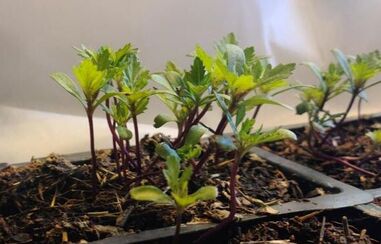 Not beets. Last week's marigolds. Not beets. Last week's marigolds. Beets. I have been waiting for three weeks to see a sprout. I even soaked the seeds overnight to encourage the tough coating to open faster when planted. Finally, I see a dozen little beet plants poking first sets of leaves aboveground. This spring started warm and lovely. It quickly retreated into wind, overnight freezes, and cooler than ideal daytime temps. In previous years, I would have pushed the envelope. I have means of sheltering tender young plants, in order to put them outside earlier than the optimal time. This year, I’m exercising patience. In my actions, if not in my heart. Come on, spring! The marigold sprout that struggled to cast off its casing is now a little plant. I transplanted other indoor starts to larger pots. That way, they can survive another 2 or 3 weeks until I place them outdoors. It's not time yet. They will suffer if I rush the process. Writing requires a similar patience. I have been trying to write a novel on a particular theme for seven years. I had several false starts as I tried to figure out how to tell the story. Now with a rough draft in hand, I think I did it. One beta reader loved it, while simultaneously making tons of suggestions for improvements. I am so anxious for this novel to reach readers. Gardening reminds me of the benefits of slowing your roll. This book is not its best self yet. I spoke to my agent, and she won’t be able to look at it until summer. That timeline encourages me to finish a polish, let my other beta reader see the manuscript, polish, polish, polish, THEN send it to my agent. A book that’s pushed to publication before it’s ready may languish, even die, like a tender garden plant moved outside before it’s ready. 4/28/2024 0 Comments Breaking Free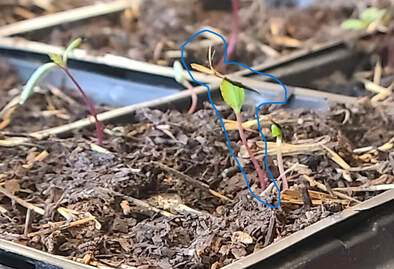 Certain stages in life are clearly defined. Birth. School graduations. Weddings. They occur at a specific date and time. Retirement has been harder for me to pin down. My husband is still active in his career, working remotely for a medical device company. When my day job went away, it was easy to piggyback on his routine because I already have a second career. I continued to get up early, and get to it on the computer. It wasn't like I was struggling to find a new path in life. I have one that I've been pursuing nearly since birth. After becoming published in 2012, I have treated fiction writing like a job. Maybe too much of a job. I had a great conversation with my critique partner Beth recently. When she retires in a few years, she's giving herself permission to do nothing for two weeks. I had a book deadline and my own workaholic nature to contend with, so I didn't take a break. That may have been a mistake. This is what a flower looks like when it breaks free from its seed. Specifically, a marigold flower. I started seeds indoors. When they sprout, they lift out of the dirt, raising the seed husk high, then casting it off and going about the business of being a flower. I thought I had cast off my day job husk five minutes after receiving The Call. It turns out I've been dragging that husk around for months. The shadow of being chained to a desk eight hours a day keeps me stuck in a routine that's not always conducive to creativity. This has been a year of casting off for me. Retiring from the day job has been more of an adjustment than I anticipated, besides the expected financial recalculations and medical insurance changes. The timing has been odd. If I had been pushed to retire a year or two earlier, I would have spent more time with my elderly parents. They are both gone now. My time is my own. Well, that not spent on family, and maintaining our aging home. There will always be responsibilities, and all of this isn't worth much without family. Let's say, a higher percentage of my time is my own. In ways, my transition has felt similar to that marigold struggling to cast off the confining seed casing. It often takes days for the primary leaves to push off the husk. Some sprouts are slower at completing the process. I had an interesting career. It was challenging and meaningful. But at the back of my mind was the desire to write fiction. To be a writer fulltime. And now I'm there. Cause for celebration. For joy, right? I'm getting there. One obstacle is thinking I need to achieve external milestones. Sales. Recognition. Accolades. But that's never been what writing was about to me. It's the process. The creating. Crafting meaning from the chaos of life. It's time to cast off the rest of that husk of workday expectations. Writing is art. Writing is joy. 4/21/2024 0 Comments Seeds and Seedlings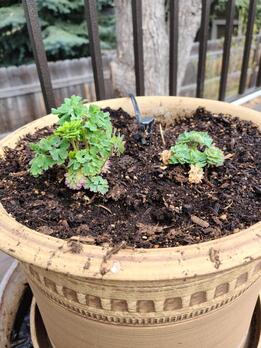 In my Rose Creek Mystery series, one secondary character is an avid gardener. Minka Kurek is Shanice's landlady and friend. The Polish immigrant in her mid-seventies grows an amazing backyard garden of flowers and vegetables. We meet her briefly in book two, but maybe I should increase her involvement in a future book. Gardeners share a hyper-awareness of the changing seasons. In Colorado right now, we are experiencing a typical Rocky Mountain spring, when it might be in the 70s one day and snowing the next. This is a time of anticipation. Every seed planted represents potential. Not all seeds will sprout, and of those, some will fail to thrive. I start most of my plants from seeds. From reliable to challenging, you can find most flowers and vegetables in seed form. I like to save a buck. A source of pride this spring is my success with blue columbines. Last year, I finally got three columbine plants to start (out of a package of about a million tiny seeds). I remembered to water them a few times during winter. Maybe I'll get flowers this season. My vegetables, herbs, and other flowers are coming along. I planted beets in the ground outdoors, because they can handle a mild freeze. Some greens like cold weather, and those will go out soon - spinach, kale, lettuce, chard. My tomatoes, peppers, and eggplants require special care. I must baby them on indoor plant shelves, putting them out for sun when the temperature is above 60, and the wind isn't blowing too hard. During this time of possibilities, gardeners take joy in the little victories. A seed sprouting from the soil is exciting. An everyday miracle. It makes me smile. 4/13/2024 1 Comment I'm back, and gardening!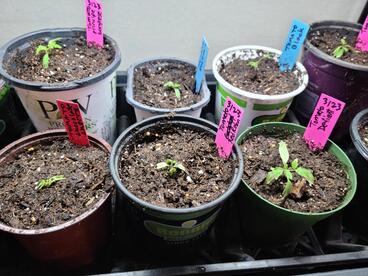 Lots has happened. Family stuff, catching a cold/flu in January, remodeling the house (on-going since December, which is activating my asthma on a regular basis), and working on book deadlines. I'm catching my breath - literally - now. I have struggled to keep up with two of my passions, exercise and gardening. I'll let my daughter keep you updated on our planned fall adventure, 24 Hours of Palmer Lake. Her posts are mostly light fun, with some difficult let's-get-real moments. Gardening in Colorado offers a challenge for growing things. We're either in drought or blizzard years, with unpredictable final hard freezes. Through all the personal difficulties this year, I managed to get my seeds started. Today, I'm transplanting the successful starts to larger pots, because I can't plant them outside for another month. Yes, mid-May is traditionally planting time for tender plants, and that's chancing it. My seedlings may look young to transplant to larger pots, but hard experience has taught me that if I leave them in their small starter containers, they get leggy, then die. Or get root rot and die. Or I set them outside for some sun, the wind snaps their spindly stems, and they die. So I'm moving the tomatoes, peppers, and a few other things, to larger pots today, to give them a fighting chance. I'll also start basil. I can grow basil, while others just can't get it going in this climate. The one plant I really struggle to grow is zucchini. I am one of the only people on the planet that doesn't suffer an overabundance of zucchini come harvest time. I have found container gardening works best for me. My husband engineered an ingenious watering system, so even if we go camping, the plants get their water needs met. In Colorado, one day can dry out even large plant containers. I've been a little down, waiting for spring. Now the trees are budding, grass is turning green, and I have plant babies to care for. Life is looking good. I will attempt to post once a week with updates on my garden. 3/7/2024 0 Comments Edge of the Cedars, Utah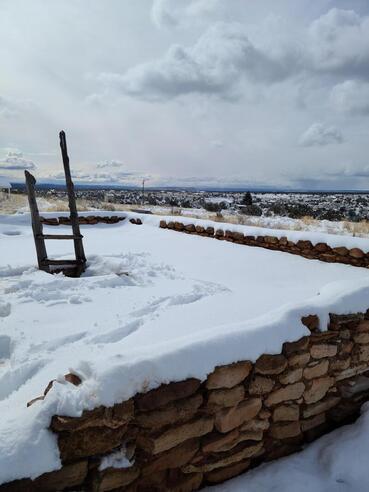 While on our brief ramble in Utah last month, we visited Edge of the Cedars State Park in Blanding, Utah. "View the largest collection of Ancestral Puebloan (Anasazi) pottery on display in the Four Corners Region and explore an authentic Puebloan village behind the museum." I love museums, so I am definitely biased. This smallish museum has an amazing collection of pottery, and enthusiastic staff ready to answer questions. We watched the introductory movie, then wandered through the exhibits. We had the facility to ourselves, this being off season for tourists. I enjoyed the descriptions of how artifacts were found. 2/26/2024 0 Comments Climbing Gear in Moab I've been working on a new Annie's project. The story involves ropes and carabiners. While my husband and friends visited outfitter store Gearheads, I interviewed the store proprietor about climbing equipment. We were supposed to be taking a few days away from work: my husband's job, my fiction writing, and our house renovations. But my mind is always on my writing. I was amazed at the variety of climbing ropes and carabiners. Pick a color! Although there are much more important characteristics to select than color. My character's life might depend on her equipment. 2/21/2024 0 Comments Small Town Museum A good small town museum presents local history like an unfolding story (in my opinion). The Dan O'Laurie Museum, aka Moab Museum, does this well. Because we were there in the off-season, we nearly had the museum to ourselves. The docent on duty chatted with us about how the museum acquired artifacts. They have far more historical objects and photographs than they can display, so exhibits rotate. Local people clearing out attics or elderly relatives' homes donate huge volumes of items. Sorting through what's best for telling the Moab story must be challenging. This little museum does a fine job. 2/18/2024 0 Comments Newspaper Rock Utah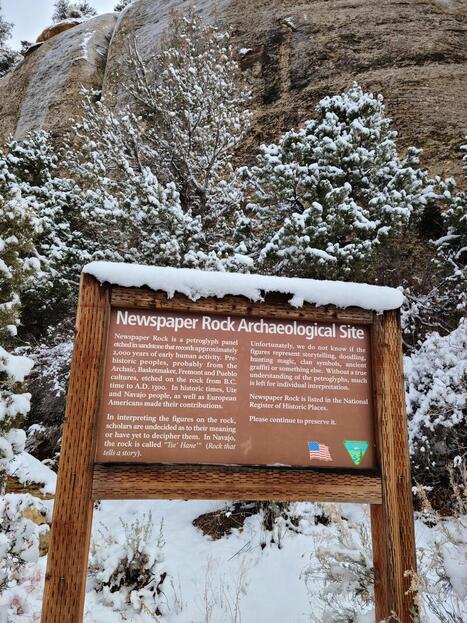 While in Utah last weekend, we visited Newspaper Rock State Historical Monument. Due to snowy trail conditions, this pullout was ideal. The short walk to view the petroglyphs was snow-packed, but walkable. "Newspaper Rock features a 200 square foot area of extremely dense Native American petroglyphs on a 'desert varnished' cliff wall. The petroglyphs were created by several ancient cultures beginning some 1,500 years ago." One theory about the purpose of the petroglyphs is that the different symbols represent different clans. Their appearance indicates the clan passing by this area. |
Subscribe to this blog: |
Proudly powered by Weebly

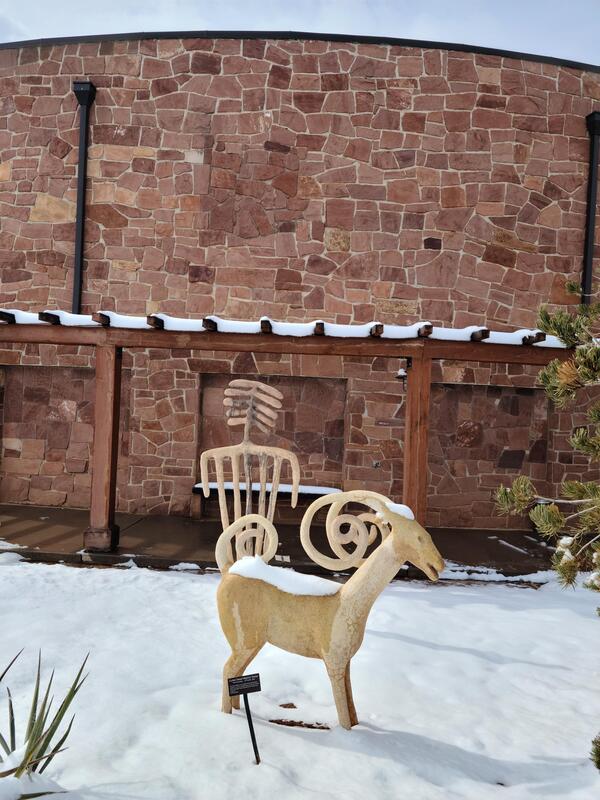
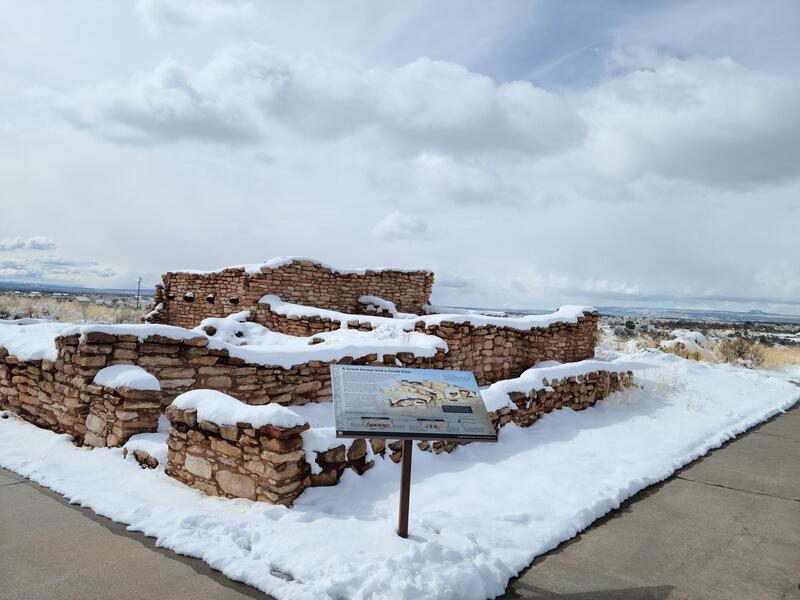
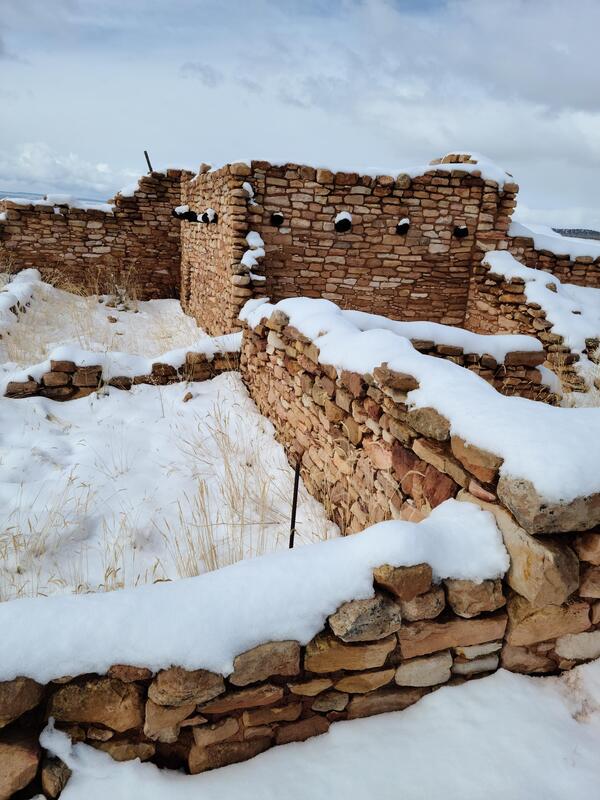
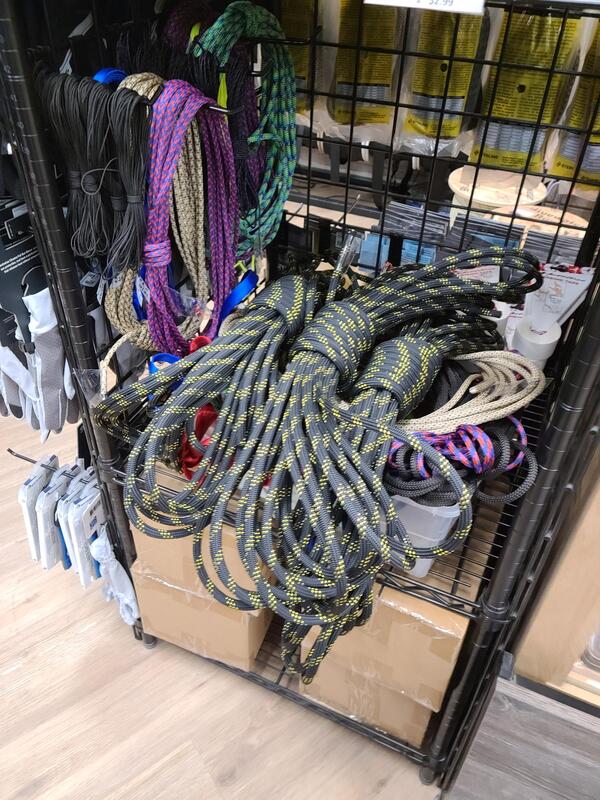
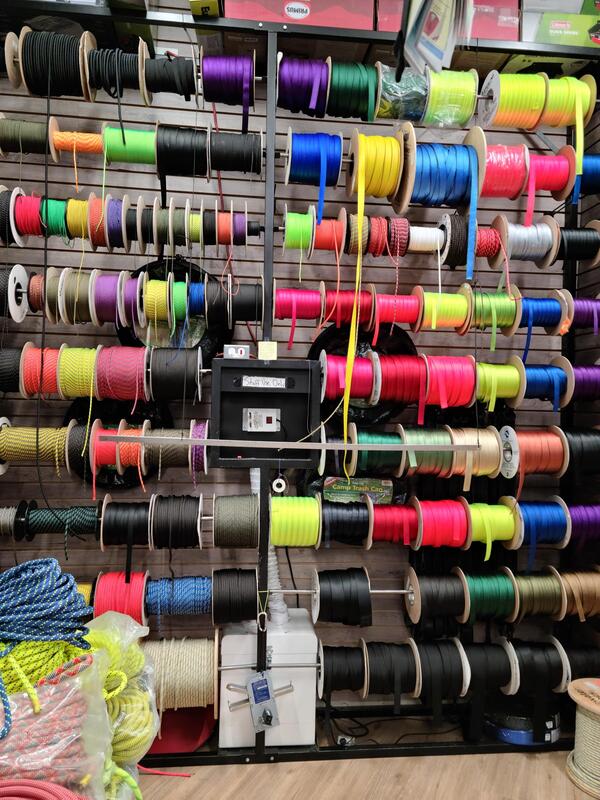







 RSS Feed
RSS Feed